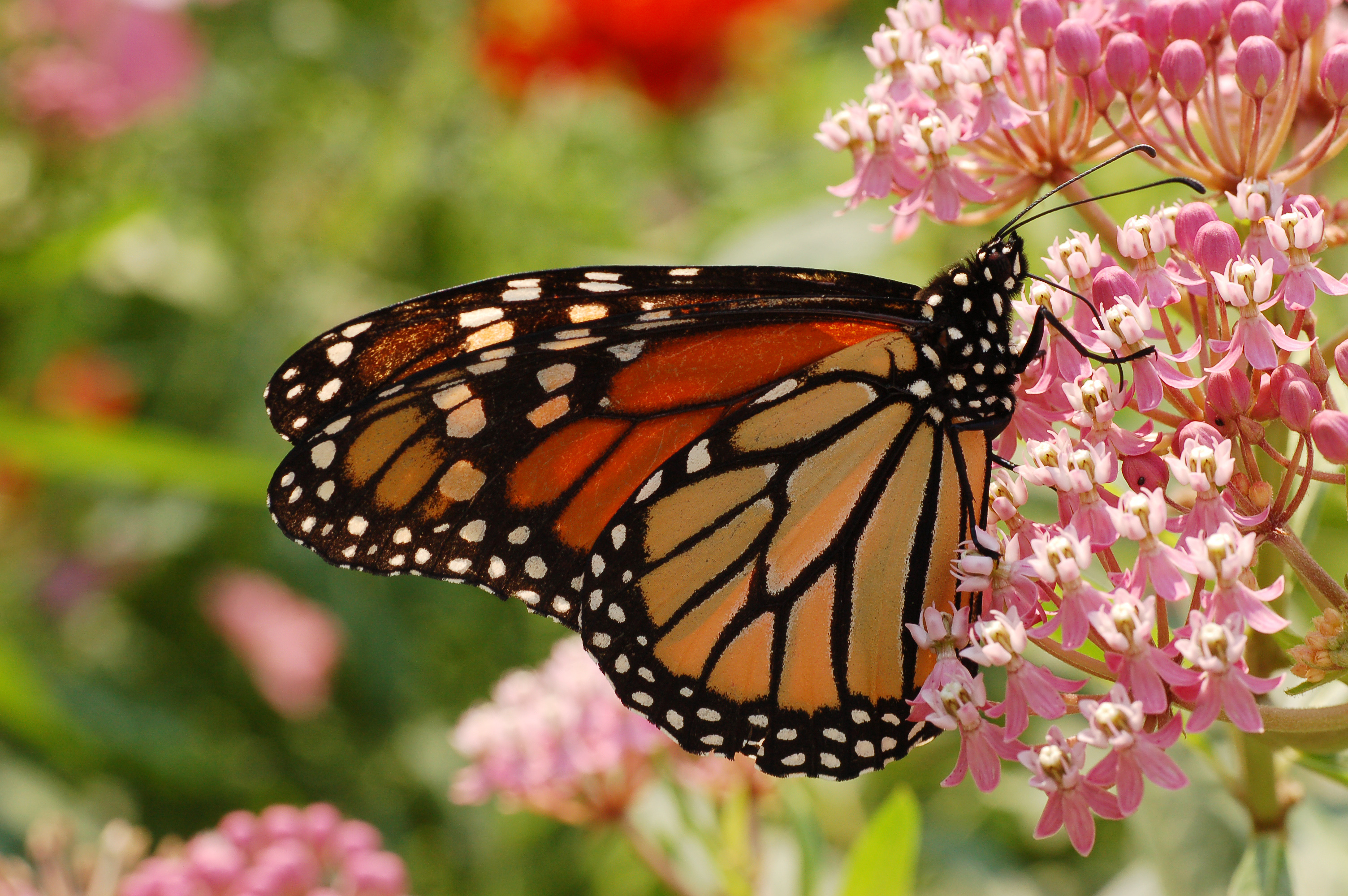|
Asclepias Syriaca
''Asclepias syriaca'', commonly called common milkweed, butterfly flower, silkweed, silky swallow-wort, and Virginia silkweed, is a species of flowering plant. It is native to southern Canada and much of the United States east of the Rocky Mountains, excluding the drier parts of the prairies. It is in the genus ''Asclepias'', the milkweeds. It grows in sandy soils as well as other kinds of soils in sunny areas. Description ''A. syriaca'' is a clonal perennial forb growing up to tall. Individual plants grow from rhizomes. All parts of common milkweed plants produce a white latex when cut. The simple leaves are opposite, sometimes whorled; broadly ovate- lanceolate. They grow to long and broad, usually with entire, undulate margins and reddish main veins. They have very short petioles and velvety undersides. The highly fragrant, nectariferous flowers vary from white (rarely) through pinkish and purplish and occur in umbellate cymes. Individual flowers are about in diame ... [...More Info...] [...Related Items...] OR: [Wikipedia] [Google] [Baidu] |
Asclepias
''Asclepias'' is a genus of herbaceous, perennial, flowering plants known as milkweeds, named for their latex, a milky substance containing cardiac glycosides termed cardenolides, exuded where cells are damaged. Most species are toxic to humans and many other species, primarily due to the presence of cardenolides, although, as with many such plants, there are species that feed upon them (e.g. their leaves) and from them (e.g. their nectar). Most notable are monarch butterflies, who use and require certain milkweeds as host plants for their larvae. The genus contains over 200 species distributed broadly across Africa, North America, and South America. It previously belonged to the family Asclepiadaceae, which is now classified as the subfamily Asclepiadoideae of the dogbane family, Apocynaceae. The genus was formally described by Carl Linnaeus in 1753, who named it after Asclepius, the Greek god of healing. Flowers Members of the genus produce some of the most complex fl ... [...More Info...] [...Related Items...] OR: [Wikipedia] [Google] [Baidu] |
